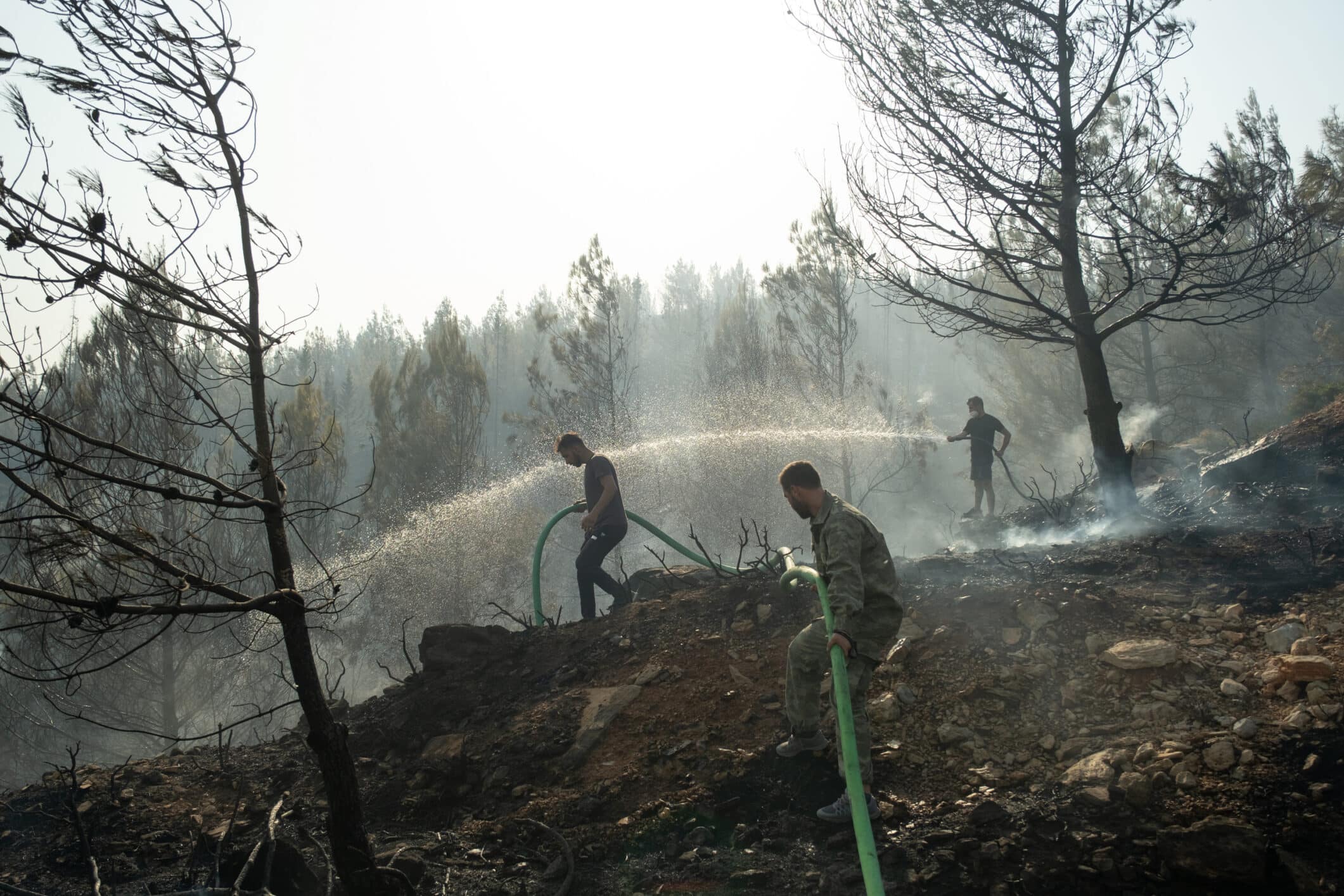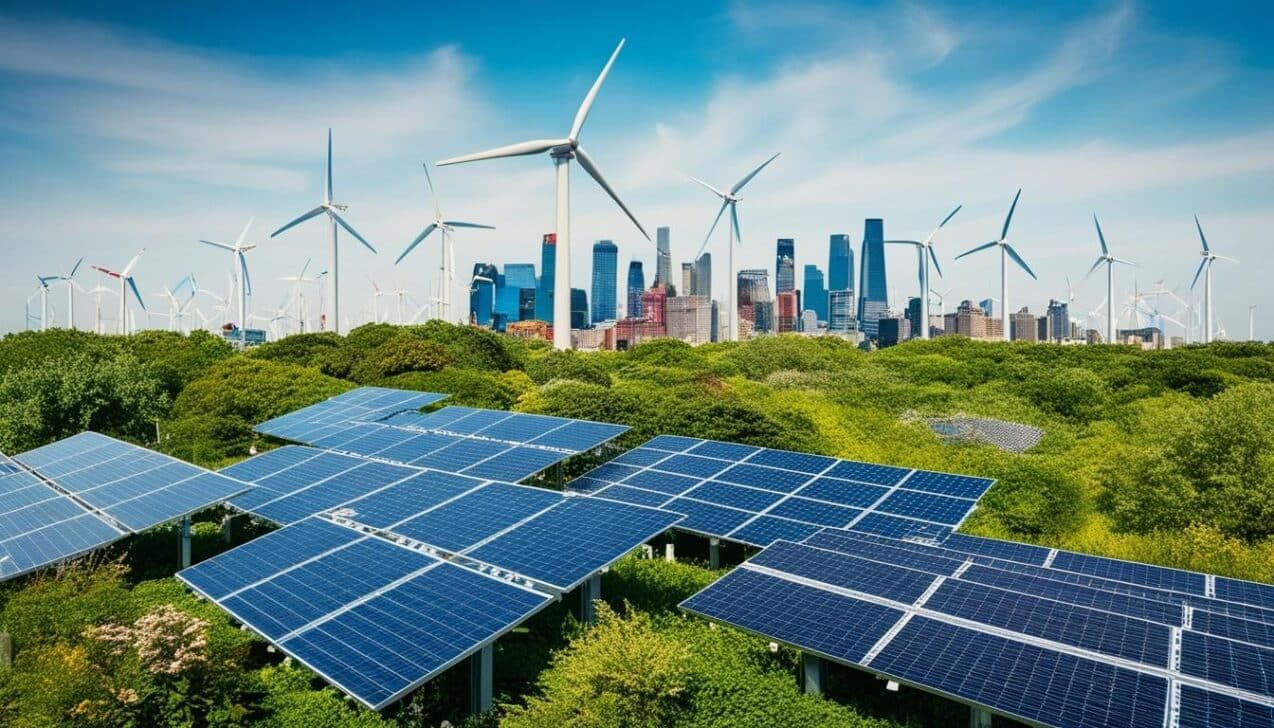A new report from the Intergovernmental Panel on Climate Change (IPCC) finds that global temperature is expected to reach or exceed 1.5°C of warming averaged over the next 20 years. It reports that emissions of greenhouse gases from human activities are already responsible for approximately 1.1°C of warming since 1850-1900.
The goal of limiting global heating to 1.5°C compared to pre-industrial levels was enshrined in the Paris Agreement and is considered to be crucial to preserve the wellbeing of human society and all life on earth.
This assessment is based on improved observational datasets to assess historical warming, as well progress in scientific understanding of the response of the climate system to human-caused greenhouse gas emissions. The report has been pulled together by some 264 authors, assessing more than 14,000 scientific papers, the body said. Several dozen countries have signed off on its contents.
A code red for humanity
IPCC Working Group Co-Chair Valérie Masson-Delmotte comments. “This report is a reality check. We now have a much clearer picture of the past, present and future climate, which is essential for understanding where we are headed, what can be done, and how we can prepare.” She continues: “It has been clear for decades that the Earth’s climate is changing, and the role of human influence on the climate system is undisputed”.
Describing the situation as “a code red for humanity”, UN Secretary General António Guterres commented: “If we combine forces now, we can avert climate catastrophe. But, as today’s report makes clear, there is no time for delay and no room for excuses. I count on government leaders and all stakeholders to ensure COP26 is a success.”
The United Nations also described the findings of the report as being “testimony to the fact that efforts to reduce greenhouse gas emissions over the past decades have been wholly insufficient.” It has called on nations to use 2021 as a key year to put in place effective strategies to reduce climate impact through ambitious ‘nationally determined contributions’. In a statement released today, it points out that “at present, only slightly more than half of all Parties to the Paris Agreement have submitted new or updated NDCs.”
What are the implications of climate change?
The new IPCC report also reflects major advances in the science of attribution – understanding the role of climate change in intensifying specific weather and climate events such as extreme heat waves and heavy rainfall events. The current wildfires in Greece, Turkey and North America are being blamed on climate change by many leading climate scientists.
Many characteristics of climate change directly depend on the level of global warming, but what people experience is often very different to the global average. For example, warming over land is larger than the global average, and it is more than twice as high in the Arctic.
The report projects that in the coming decades climate changes will increase in all regions. For 1.5°C of global warming, there will be increasing heat waves, longer warm seasons and shorter cold seasons. At 2°C of global warming, heat extremes would more often reach critical tolerance thresholds for agriculture and health, the report shows.
But it is not just about temperature. Climate change is bringing multiple different changes in different regions – which will all increase with further warming. These include changes to wetness and dryness, to winds, snow and ice, coastal areas and oceans. For example, climate change is intensifying the water cycle. This brings more intense rainfall and associated flooding, as well as more intense drought in many regions.
- Climate change is affecting rainfall patterns. In high latitudes, precipitation is likely to increase, while it is projected to decrease over large parts of the subtropics. Changes to monsoon precipitation are expected, which will vary by region.
- Coastal areas will see continued sea level rise throughout the 21st century, contributing to more frequent and severe coastal flooding in low-lying areas and coastal erosion. Extreme sea level events that previously occurred once in 100 years could happen every year by the end of this century.
- Further warming will amplify permafrost thawing, and the loss of seasonal snow cover, melting of glaciers and ice sheets, and loss of summer Arctic sea ice.
- Changes to the ocean, including warming, more frequent marine heatwaves, ocean acidification, and reduced oxygen levels have been clearly linked to human influence. These changes affect both ocean ecosystems and the people that rely on them, and they will continue throughout at least the rest of this century.
- For cities, some aspects of climate change may be amplified, including heat (since urban areas are usually warmer than their surroundings), flooding from heavy precipitation events and sea level rise in coastal cities.
“Climate change is already affecting every region on Earth, in multiple ways. The changes we experience will increase with additional warming,” said IPCC Working Group I Co-Chair Panmao Zhai.
The IPCC has created an interactive atlas showing the potential changes to temperature and precipitation across the globe under different climate heating scenarios.





